As you may have already noticed, fall is a big season for books—particularly novels. This year, we’ve got a TBR full of blockbusters, indie darlings, debuts, and yes: Sally Rooney. So where’s an eager reader to start? The Literary Hub staff has a few thoughts.
NB that this list is by no means exhaustive—for that, you may want to go here—after all, the season has barely begun, and we’re (mostly) human. That is, we haven’t read everything yet! But we’ve always read enough to dole out a few recommendations, so here are 22 very good novels that our staff members have read so far, and that we think you’ll probably enjoy. In fact, your satisfaction is guaranteed—or your money back.
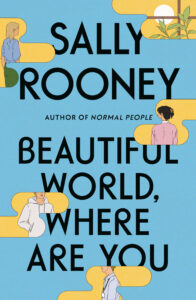
Sally Rooney, Beautiful World, Where Are You (FSG, September 7)
Sally Rooney does not need me to tell you to read her new novel—she has bucket hats for that. Nevertheless, and very much despite the hype: you should read her new novel. I think the root of all Sally Rooney discourse is that she’s quite good at writing about sex and dating, and certain book people don’t want to admit that her appeal is that simple. But in fact, it’s difficult to write about these things in a compelling way. In Beautiful World, Where Are You, Rooney’s portraits of three relationships—two romantic, one platonic—play out in country homes and AirBnbs and Dublin streets as well as emails between her two protagonists, longtime friends Eileen and Alice. Alice is a young novelist who has seen fame and minor backlash that mirrors Rooney’s own, and the emails seem to be, at least in part, a response to critics (Twitter and otherwise), who questioned whether her previous novels were sufficiently Marxist. I found this awareness, which seemed honest rather than winky, almost as compelling as the sex. (But yes, the sex is still good.) Rooney’s spare realism is threaded with glimmers of hope, which I found both generous and, given the year that was and continues to be, extremely appealing. –Jessie Gaynor, Senior Editor
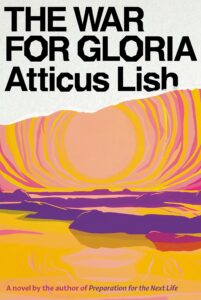
Atticus Lish, The War for Gloria (Knopf, September 7)
As a child, Corey Goltz’s favorite cartoon is Action Man, who, when he gets injured, says his arm is tweaked. Corey likes that language: “The word tweaked isolated the damage, confining it to a limb, unlike the phrase, ‘I’m hurt,’ which potentially meant the entire person and all the suffering they could feel, including loneliness and fear.” Unfortunately, in Corey’s life, the body will dictate everything. When his loving and vibrant mother Gloria is diagnosed with ALS, Corey drops everything to take care of her; gets in fights at school; starts training MMA. Meanwhile, his mysterious and absent father, a security guard at MIT, reappears and mentors Corey’s physics-obsessed friend, Adrian, in proto-incel philosophies. In this novel, Lish juxtaposes the reality of bodies with MIT’s “beautiful ideas,” but they’re not in complete opposition: for Corey, mixed martial arts is “a kind of art that was mathematical and infinite.” The War for Gloria is at least partially about violence, in that it fixates on the fragility of people through their bodies—the gonzo ending (no spoilers) confirms this—but Lish renders each character and relationship with specificity and kindness. –Walker Caplan, Staff Writer
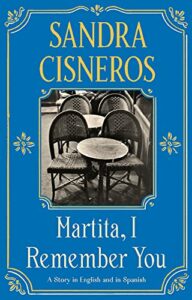
Sandra Cisneros, Martita, I Remember You/Martita Te Recuerdo (Vintage, September 7)
The House on Mango Street was THE book of my teenage years. It was for me, as I’m sure it was for many others, the first introduction to a Cisneros sentence—the way it glitters and lifts from the page, the way it delves into the most intimate of relationships in just a few words. Martita, I Remember You/Martita Te Recuerdo feels like a continuation of that magic. A dual language edition novel, it follows Corina as she moves to Paris from Chicago to become a writer. In Paris, Corina’s dreams falter in the face of little money, homesickness, and sleeping on the floor of the metro. Even so, her life in the city gleams with underground parties and a friendship with two other women, the latter bringing up questions of how we carry the ties that bind us, even after so much time, and how we return to them. And the English/Spanish edition underscores a recurring theme in Cisneros’s work: how the languages we speak help shape the relationships we have, and the intimacies we forge. –Snigdha Koirala, Editorial Fellow
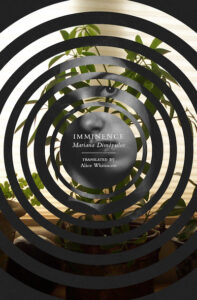
Mariana Dimópulos, tr. Alice Whitmore, Imminence (Transit Books, September 7)
Home alone with her newborn for the first time, the protagonist of Mariana Dimópulos’ Imminence feels . . . nothing. “I have to touch him now,” she says. “I try stroking a foot, then a shoulder. But no current lifts in me, nothing pulls at my chest the way they said it would.” This lack of feeling prompts the reflections that fill the rest of the novella, which occurs between her present life—the intermittently placid and chaotic moments of early parenthood in a Buenos Aires apartment—and flashbacks to what came before: her lovers, the shifting alliances of friendship, her relationship to womanhood, the many small decisions that brought her here. Mariana Dimópulos immerses us in this domestic world with a narrative that is sometimes disorienting, always captivating, and filled with quiet poignancy. –Corinne Segal, Senior Editor
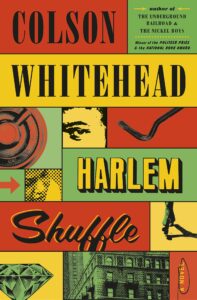
Colson Whitehead, Harlem Shuffle (Doubleday, September 14)
If you’re looking for a good time, call this number. After all, you can always count on Colson Whitehead. His latest is a literary crime caper set in Harlem in the 1960s, in which Ray Carney, despite his best efforts to be an upstanding furniture salesman and family man, gets dragged into his shady cousin Freddie’s unsavory business dealings. Whitehead’s prose is warm and flexible, nailing mood and detail without being particularly lyrical, inviting you to turn the pages without any cheap tricks. I expected nothing less from the master of genre-bending. The settings particularly pop in this novel, which is simply begging to be a TV series that celebrates the bygone days of New York City, but you also get some good old family drama and a hell of a lot of fun for your money. Best of both worlds. –Emily Temple, Managing Editor
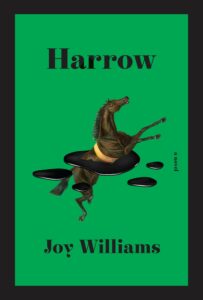
Joy Williams, Harrow (Knopf, September 14)
This is Joy Williams’s first novel in 20 years (since The Quick and the Dead), but her sensibility is as elegantly deranged as ever. It’s sort of up for debate whether the apocalypse is past or in progress, but things aren’t great for Khristen—a teenager whose mother believes she died and came back to life as an infant—after her bizarre boarding school closes down. She makes her way to an ominous resort she thought she heard her mother mention once, which turns out to be less a resort and more a communal living situation for elderly people who plan to commit violent acts against corporations and other evildoers, often at the expense of their own lives. Because why not, right? The prose is as deadpan as Donald Barthelme and as inventive as Kathryn Davis, but always Williams’s witty, weird-ass own. This is a hypnotizing novel, funny in places and chilling in others, filled with wacky and tragic characters, that unspools the absurdity in just one of our many very possible bad futures. –Emily Temple, Managing Editor
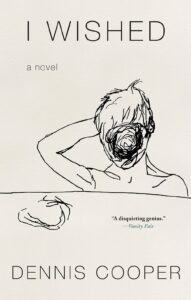
Dennis Cooper, I Wished (Soho Press, Sept 14)
“Why hasn’t anyone who knew him ever tried to contact me to say, ‘I knew him too’?” Dennis Cooper asks in I Wished, his newest work on his oldest subject, a past love and obsession, George Miles. Cooper has written extensively on the loss of this man in his “George Miles Cycle”, a series of five semi-autobiographical novels dissecting and delineating their relationship: their childhood friendship, brief love affair, and Miles’ suicide. I Wished encompasses years of Miles’ imagined life, events that never occurred, to conjure the past and present absence of this revered figure, and aims to ask the question: how do we talk about grief in a way that anyone else will care? Maybe it’s a question that will never be answered fully, but Cooper has long ago resolved to try, and thank god for it. These stories of Miles are a well worn stone in the author’s hands; he’s been turning them over and over for so many years that you can’t imagine there’s a craggy edge left to hold onto, anything he missed in their years of familiarity and retelling: and yet. This compulsion to tell us how it was, how it is, is the bedrock of the matter at hand: grief doesn’t end, just because you’ve had other lovers, just because time has passed, just because you’ve written about it already. I Wished is not an easy book by any means, but is in some way a balm to those who also carry the weight of loss, the acknowledgement of how heavy it can be, and how it is also proof of having lived and loved. It is a book about what to do with that weight, how to carry it, how to honor it. –Julia Hass, Contributing Editor
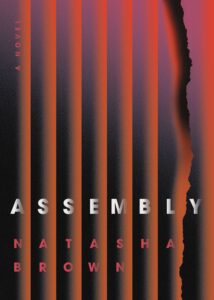
Natasha Brown, Assembly (Little, Brown, September 14)
By all accounts, the protagonist of Natasha Brown’s debut novel is a success story: she’s a Black British woman who’s managed to climb the ranks of her finance job, acquiring wealth, status, and a loving boyfriend. But her siloed position in her workplace and relationships—and her diagnosed but untreated cancer—is killing her. The novel’s main event: an extravagant and cringe-inducing garden party at the narrator’s boyfriend’s family estate in the English countryside, told in short vignettes of sparse, tightly wound sentences. The narrator’s general reticence recalls Sophie Treadwell’s Machinal, and especially when a surprising word usage snakes out, Garielle Lutz comes to mind. But Brown’s voice is her own, and in Assembly, form mirrors content. “I try to consider events as if they’re happening to someone else,” the narrator tells us. “To protect myself, I detach.” And: “Even in the ostensible privacy of my own thoughts I feel (still) compelled to restrict what I say.” In relatively few words, Brown gives us both a biting sendup-meets-diagnosis of the narrator’s white colleagues and a portrait of a woman carefully considering—and then opting out of—her life. At only 112 pages, Assembly is a quick and unnerving read from a skilled prose stylist; it makes a case for more short books, that is, if they’re all this good. –Walker Caplan, Staff Writer

Gayl Jones, Palmares (Beacon Press September 14)
Gayl Jones’ Palmares begins with Almeyda, a young girl enslaved in Portuguese plantations and follows her as she escapes and travels across Brazil, in search of her husband. A novel invested in grappling with, and breaking the lines between, historical conditions and intimate endeavors, Palmares troubles the idea of history itself—how we tell it, contain it, and disseminate it—and thus makes us ask what it means to examine and ground ourselves in this heavy thing called history. Jones’ magical realism evokes orature, moving from year to year, and propels us into a complex language and form to walk through, at times, an unspeakable legacy of violence. –Snigdha Koirala, Editorial Fellow
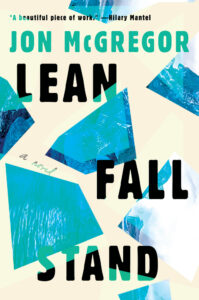
Jon McGregor, Lean, Fall, Stand (Catapult, September 21)
Those of you unfamiliar with the work of Costa and International Dublin International Literary Award-winning British author Jon McGregor (Even the Dogs, Reservoir 13), be warned: Lean, Fall, Stand is not a cheery read. In fact, it’s an almost unbearably painful slog, but it’s an almost unbearably painful slog by design, and a delicately wrought, hugely moving one at that. The story begins in a field station in Antarctica, where Robert “Doc” Wright has been serving as a guide and technical assistant for over 30 years, feeling more at home in near-total isolation of the frozen tundra than he ever has back at the family home in rural Cambridge. When disaster strikes his small team, Robert, having suffered a stroke, is airlifted back to a Chilean hospital where his academic oceanographer wife, Anna, becomes the novel’s central figure—thrust into the role of caretaker for a man now robbed of his speech and mobility. As Robert struggles to eek out enough words to be understood, Anna contemplates a life stripped of the independence they had both, until recently, prized above all else. Humane and quietly heartbreaking, Lean, Fall, Stand is a bold experiment in language and the tragic poetry to be found in its breakdown. –Dan Sheehan, Book Marks Editor in Chief
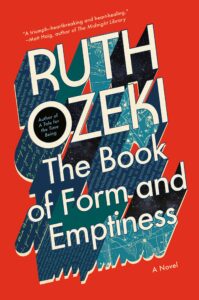
Ruth Ozeki, The Book of Form and Emptiness (Viking, September 21)
If what you need right now is to sink into a big, warm, literary bath, this is the book for you. It’s not that Ozeki’s latest novel isn’t challenging, it’s just that it manages to be so while also being pure pleasure, especially if you’re the kind of person who once had mostly books for friends. In the opening pages, Benny’s father Kenji is killed in a bizarre chicken truck accident, and after that, he begins to hear the voices of the things around him—most notably, his book, which is also the book you are reading—which, helpfully, his mother begins to hoard. To escape the cacophony of voices and the disregard of his classmates, Benny retreats to—you guessed it—the library, where he finds notes hidden in books that seem to be written just for him, which lead him to a host of quirky characters, among other things. It’s a big book in more ways than one, complex and ambitious and wide-ranging, but honestly also just so charming I found it hard to walk away from, even when I was done. –Emily Temple, Managing Editor
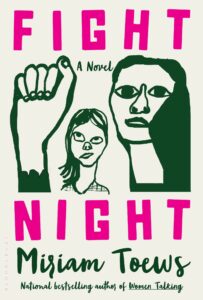
Miriam Toews, Fight Night (Bloomsbury, October 5)
It’s always a good season for a new Miriam Toews. The narrator of this multigenerational story is Swiv, a precocious and hilariously prudish nine-year-old (she nearly dies over seeing An Actual Thong) with a fighting spirit. Literally—she’s currently suspended from school for getting into one too many recess throwdowns. Her mother, a beleaguered actor in her third trimester (or, in the family’s parlance, third try, mister!) also tends to “go scorched earth,” while Grandma has responded to life’s patriarchal bullshit by being indefatigably joyful. (Also literally—she often fails at tasks because she’s laughing too hard to go on.) The absence of Swiv’s father is the $64,000 question, as Grandma puts it, but we honestly don’t care too much as it’s unclear what, if anything, he’d contribute to this solid matrilineal dynamic. There are Editorial Meetings in place of school and an ill-advised trip from Toronto to the raisin capital of the world (Fresno, California, for the uninitiated), as well as one epic monologue and a fast-clipped ending sequence that I’m pretty sure I read without breathing. If you’re already a Toews-head, you’ll find much to love here, and you haven’t read Toews yet, well, as Grandma would say: bombs away! –Eliza Smith, Audience Development Editor
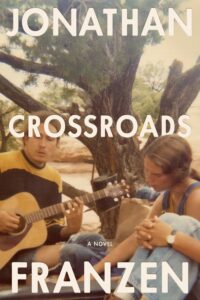
Jonathan Franzen, Crossroads (FSG, October 5)
The worst thing I can say about Crossroads—Jonathan Franzen’s best novel since The Corrections, and yes, I’ve loved them all—is that it’s the first novel in a trilogy, and we’re going to have to wait an unspecified length of time for the remaining two. Still, by no means should this forced parcelling of family epic dissuade you from reading Vol. 1. It is very, very good. Crossroads follows roughly three months in the lives of the Hildebrandt family, with much of the action clustered around Christmas and Easter—appropriate, given that Russ, the patriarch, is an associate pastor, albeit one with infidelity on the brain. His wife, Marion (who bores him), is reckoning with long-buried trauma. His three older children are groping their way through early-70s adolescence, including questions of God, war, morality, drugs, and sex. If you’ve ever participated in any sort of faith-based youth group, you may find yourself uncomfortably seen. Franzen is a master of rendering the broad sweep of humanity through the (extremely human) minutia of a family. In Crossroads, I felt and frustration and fondness for the Hildebrandts so deep it was almost familial. This is, perhaps, his greatest skill as a writer: his characters fuck up in the most honest and beautiful ways. What more could a reader ask for, really? –Jessie Gaynor, Senior Editor
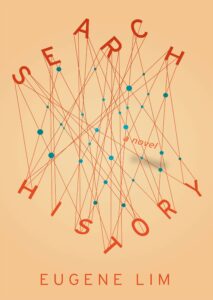
Eugene Lim, Search History (Coffee House Press, October 5)
Search History is a rabbit hole of grief and humor in equal measure. Inside, you will find a narrator mourning the death of their friend, Frank—and Frank’s reincarnation as a (cyber)dog. I suppose the basic plot of the novel could be described as a pursuit of the canine / reincarnated friend, who has run away. But, as a reader, you move between the chase and meditations on artificial intelligence, art and storytelling, and the ways our lives are marked (by race, by common experience, what have you). You will encounter a robot named César Aira, a clown college, poetry readings full of white people, the Japanese internment camps, an AI scientist who hopes a robot can write a novel that will trick literary committees into giving it awards. The experience of reading this novel is wonderfully digressive. It feels like you are thumbing through someone’s search history, in a way, which is to say it feels like being allowed to roam the rooms of someone’s mind. For a book so occupied with artificial intelligence, it is strikingly human and grounded in some of New York’s deep cuts. “The basement food court of forking paths”—yeah, I know exactly where that is, and if you’ve spent a lot of time in Chinatown, maybe you do, too. Or the memory of the summer when New York City was littered with old pianos, decorated by various artists?
To stumble upon such recognizable details in the midst of this maze is like finding a friend in a crowd. I can’t stress enough, though, how funny this novel is. At one point, there is a video game called Avant Gardener. At every turn, there are linguistic delights. Search History also functions as satire. (The key to being a “successful” artist? “Make sure the rich can understand your work but just barely.”) If it sounds confusing, just go with it. Eugene Lim collages it all together masterfully. Suffice to say, it’s hard to describe to you exactly what happens in these gleefully experimental pages, but I will say this: It sort of feels like Italo Calvino’s If on a winter’s night a traveler and Jeanette Winterson’s Frankissstein had a baby that inherited its parents’ obsessions with storytelling and technology and their penchant for playfulness. –Katie Yee, Book Marks Associate Editor
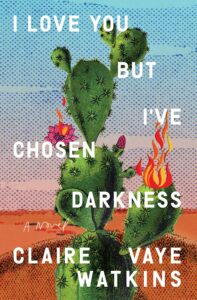
Claire Vaye Watkins, I Love You But I’ve Chosen Darkness (Riverhead, October 5)
Claire Vaye Watkins—whose magnificent 2012 debut Battleborn remains one of my favorite short story collections of the 21st century—returns to her native Nevada in this surreal, hilarious, and sneakily devastating hybrid of autobiography and fiction. Watkins’ punchy, postpartum new mother narrator—who shares the author’s name, age, profession, sensational parentage, and tumultuous family history—arrives in Reno, her old stomping ground, to give a reading, after which she decides not to go home. For weeks that become months, as her increasingly-estranged husband waits with their daughter back in Michigan, Claire steps back into the past with a motley crew of old friends, takes an off-the-grid California excursion with a new lover, and shacks up with a mercurial collective of artist-cum-squatters near her family’s old land. Through it all, in a voice that blazes with ferocious wit and candor, she contemplates her fraught relationship to motherhood and domesticity, sexuality and monogamy, writing and academia, and the legend of troubled parents—Manson cult member Paul and opiate-addicted Martha—both of whom burned bright and died too soon. –Dan Sheehan, Book Marks Editor in Chief
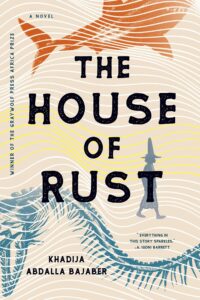
Khadija Abdalla Bajaber, The House of Rust (Graywolf Press, October 19)
Khadija Abdalla Bajaber’s The House of Rust, set among the Hadrami community of Mombasa, Kenya, opens with a family in crisis: Aisha’s father, a fisherman, “last seen as a sun-glare blot on the horizon,” has disappeared. On a moonless night not long thereafter, a ship made of bones presents itself to her from the darkness, and her journey to find him begins. Aisha’s world is enchanted by unlikely companions—including the talking cat who accompanies her quest—and infused with danger; she soon finds herself in battle with nature, the spiritual world, and her own desires. Later in the book, she must confront the difference between her grandmother’s expectation that she will marry a local boy and her own wish for self-sufficiency. Her journey brings her, eventually, to the House of Rust, where she “will know everything that the lord has not forbidden … Everything you only half-saw because you half-imagined it will be fully seen, will show itself to you.” This is an adventure story, yes, but also a thoughtful consideration of the questions that, once introduced in adolescence, follow us the rest of our lives; Bajaber’s writing, imaginative and poetic, brings us to the wrenching heart of Aisha’s coming of age. –Corinne Segal, Senior Editor
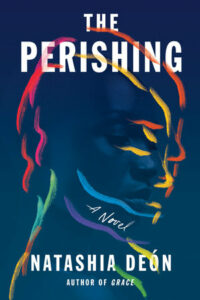
Natashia Deón, The Perishing (Counterpoint, November 2)
Who are we, if not the sum of our experiences? If the body keeps score, how is history written on our flesh? Natashia Deón’s time-bending novel, The Perishing, artfully considers these questions and more. Set against the backdrop of 1930s Los Angeles, Louise finds herself in a back alley without any recollection of her identity. However, Lou seems to have previously endured similar experiences. Her inexplicable cycle of rebirth, or reincarnation, is unpredictable. She may wake up a man or a woman; the only thing that remains the same is that she always inhabits the body of a Black person. This one restriction placed on Lou’s ability echoes a glaring truth of real-life history, and in turn, the crushing legacy of white supremacy: fear of a Black body is timeless.
Deón’s cultural observations are as sharp and arresting as her use of descriptive language. Physical places, like people, have character, distinct features that speak to the life (or lack thereof) within. For example: “It’s a brick house that’s so clearly abandoned in this neighborhood already peppered with families and life that it’s like a gray front tooth in a mouth of white.” And although the bulk of the novel takes place in the past, I was struck by the immediacy of Lou’s narrative voice. Her time as a journalist for the Los Angeles Times reveals the repetitive nature of human history. The issues that haunt Lou’s Los Angeles are evergreen—xenophobia, racism, class, impending war, and anti-vaxxers spouting conspiracies. We collective mortals just can’t seem to learn from our mistakes, choosing to cling to the false promises of individualism.
In Part Three, the truth of Lou’s identity is revealed—as well as a villain who was hiding in plain sight. There is no Hollywood-approved happy ending. Lou does not stumble upon a “cure” for her immorality or live out the rest of her days as a revered oracle that prevents society from imminent disaster. Lou’s journey to reclamation of her personhood teaches her valuable life lessons such as the importance of friendship and the destructive hunger of unchecked power. Readers looking for a straightforward sci-fi tale may be disappointed, but this is in no part due to Deón’s writing. The Perishing is not a novel that’s largely preoccupied with the physical mechanics of time travel. Instead, time travel is a device used to examine philosophical questions that are embedded in mankind’s search for meaning. –Vanessa Willoughby, Assistant Editor
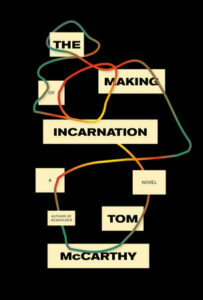
Tom McCarthy, The Making of Incarnation (Knopf, November 2)
Tom McCarthy is a smarty-pants. His 2005 debut, Remainder (the book your college boyfriend, if he were British, would have rolled cigarettes on the cover of instead of Infinite Jest), was hailed by Zadie Smith as a model the serious literary novel would do well to emulate it if had any desire to step out of the obsolete formalism that had begun to prevail at the close of the last century and persist in any meaningful way into this one. Across looping narratives, The Making of Incarnation examines the birth of time and motion studies and with them the age of surveillance and big data. Alongside an international hunt for Box 808, the missing records from Lillian Gilbreth, the mother of the mass observation era, Mark Phocan, the chief engineer of Pantarey Motion Systems, consults on the blockbuster space movie Incarnation. Russian spies, physics, airplanes, space travel: a wild, McCarthyish ride that again reinvents what a novel can be. –Emily Firetog, Deputy Editor
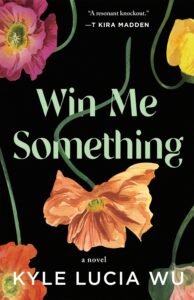
Kyle Lucia Wu, Win Me Something (Tin House, November 2)
I’ve never read a novel quite like Win Me Something, which is to say that I’ve never seen the nuances of navigating a biracial identity put, so beautifully, in fiction. This debut introduces us to Willa Chen, a young Chinese American woman who becomes the live-in nanny for a wealthy white family in Tribeca. Kyle Lucia Wu grounds us so precisely in Willa’s perspective, guiding us with care through her time as a caregiver to a precocious child of Manhattan. We are also gifted with a smattering of Willa’s memories, growing up as a child of divorce, never feeling fully a part of either of her parents’ new families. Win Me Something is a book that understands the contradictions of human relationships. It pinpoints that feeling of lust for a different, more comfortable life coupled with resentment that such ease even exists. The novel also perfectly captures the distinct rhythms—and disruptions—of Willa’s days. There is a musicality to the routine, ferrying the child from school to penthouse playdates, from expensive restaurants to Chinese class, where Willa also learns to say things about family that she hasn’t been able to vocalize before.
What Win Me Something does so successfully is give words to that uncomfortable, familiar place: the failings of our parents, the hot rush of embarrassment we endured when encountering racism for the first time, the hot rush of embarrassment that plagues us still when we’re confronted with the carelessness of Nice White People, the naked desire to be seen not in slivers or fragments but for who we are, whole. Readers will recognize themselves in Willa’s loneliness, and they will feel that they are, finally, in good company. –Katie Yee, Book Marks Associate Editor
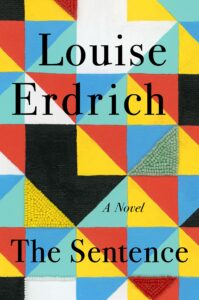
Louise Erdrich, The Sentence (Harper, Nov 9)
The majority of Louise Erdrich’s new novel takes place over the span of one year, from the Day of the Dead in 2019 to the Day of the Dead in 2020. It’s a year most of us remember all too vividly and perhaps aren’t too eager to re-live, but Erdrich pulls it off and more so with this refreshing, sprawling ghost story. The protagonist, Tookie, is an endearingly blunt Ojibwe woman who once went to prison for transporting a body across state lines as a favor to a white friend (unbeknownst to her, the body happened to also be transporting crack cocaine, these things happen) and since being released, now works in a bookstore in Minneapolis with other Indigenous people. One of her most annoying customers, Flora, who unconvincingly insists that she too is Indigenous, passes away and begins her next chapter of existence as a doubly annoying ghost. But as Flora continues to haunt the bookstore, Tookie must grapple with the unresolvedness of this woman who she brushed aside, her own varied past, and the inescapable violence of living in America. The year of 2020 was one of chaos, grief, and reckoning, and Erdrich leads us back through with patient eyes and a sense of humor throughout, even managing to make the terrifying self-importance of whiteness feel absurdly hilarious. As we grapple with the inescapable nature of history, the idea of a livable future offers itself like a beacon, a light shining from afar, one that will continue to exist as long as we believe in it. –Julia Hass, Contributing Editor

Mina Seçkin, The Four Humors (Catapult, November 9)
In her debut novel, Mina Seçkin transports us to Istanbul, where 20-year-old Sibel is supposed to tend to her grandmother and study for the MCAT. She’s also supposed to visit her father’s grave, but that can wait till later, can’t it? She spends her days indulging in soap operas, visiting markets with her American boyfriend, and hanging out with her cousin. The book begins with a striking invocation of Hippocrates’ four humors theory of ancient medicine: blood, phlegm, black bile, and choler flow through your body and dictate your character. Mina Seçkin writes about the human body in a way that is exacting and beautiful, and I am in awe at the way she pins pain onto the page. Sibel’s mysterious headaches pulse through the narrative; protests rumble through the streets of Turkey. The ache captured here is physical and emotional, generational and political. As Sibel navigates the city, more of her family’s history rises to the surface. But I don’t mean to make this sound like a terribly heavy and self-serious novel. The narrative voice is infused with levity, generosity, and (yes) humor. The Four Humors is a gorgeous excavation of the body—its flaws and its desires—and what it means to heal. –Katie Yee, Book Marks Associate Editor
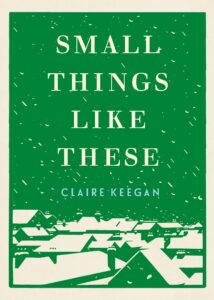
Claire Keegan, Small Things Like These (Grove, November 30)
There is a recognizable “Claire Keegan story”: small-town Ireland, a dark secret, a man with a burden to bear. Keegan’s new, slim novel, Small Things Like These begins with one such man: Bill Furlong, born out of wedlock to a young mother, a man who has worked his way up: now, in 1985, in rural Ireland, he has a good business, a good wife, five good daughters. His deliveries of coal and timber throughout New Ross bring him to the Church-run convent outside of town where he discovers something terrible is happening. The choices he must make—what to say and whom to tell—will have repercussions for every aspect of his life and the future of his family. It is a story about choice, societal pressure, and morality. Of course, it’s not difficult to make the story of the Magdalene Laundries emotionally wrought. These institutions have become news-worthy in recent years; their true, horrific history revealed with exposes uncovering children’s mass graves (it was only in January of this year that the Irish government issued an apology for their role in perpetuating the institutions.) But in Keegan’s hands, the political is personal. She writes with expansive empathy, not only for people but for the natural world. Plus—and this might just be a requirement of Irish authors—the descriptions of weather are pretty spectacular. –Emily Firetog, Deputy Editor



